Mingshi Wang
OIBench: Benchmarking Strong Reasoning Models with Olympiad in Informatics
Jun 12, 2025
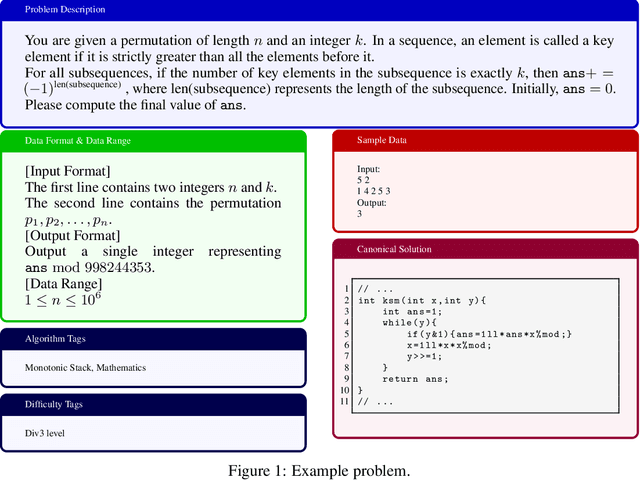

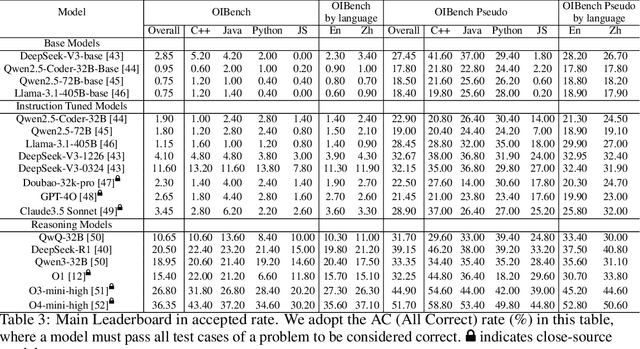
Abstract:As models become increasingly sophisticated, conventional algorithm benchmarks are increasingly saturated, underscoring the need for more challenging benchmarks to guide future improvements in algorithmic reasoning. This paper introduces OIBench, a high-quality, private, and challenging olympiad-level informatics dataset comprising 250 carefully curated original problems. We detail the construction methodology of the benchmark, ensuring a comprehensive assessment across various programming paradigms and complexities, and we demonstrate its contamination-resistant properties via experiments. We propose Time/Space Completion Curves for finer-grained efficiency analysis and enable direct human-model comparisons through high-level participant evaluations. Our experiments reveal that while open-source models lag behind closed-source counterparts, current SOTA models already outperform most human participants in both correctness and efficiency, while still being suboptimal compared to the canonical solutions. By releasing OIBench as a fully open-source resource (https://huggingface.co/datasets/AGI-Eval/OIBench), we hope this benchmark will contribute to advancing code reasoning capabilities for future LLMs.
Learning Continuous Treatment Policy and Bipartite Embeddings for Matching with Heterogeneous Causal Effects
Apr 21, 2020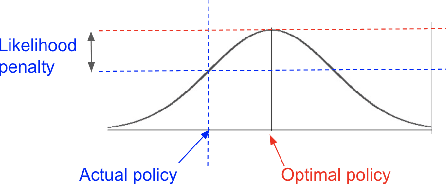
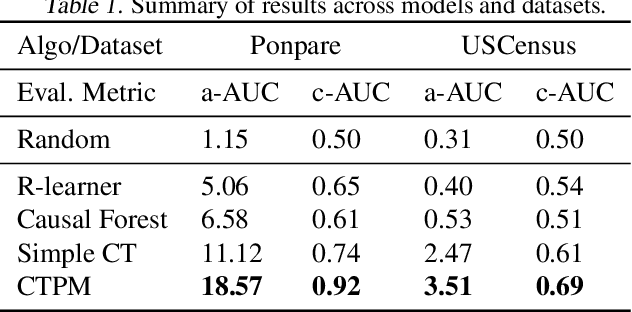
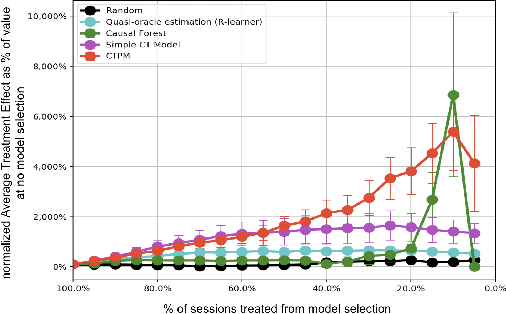
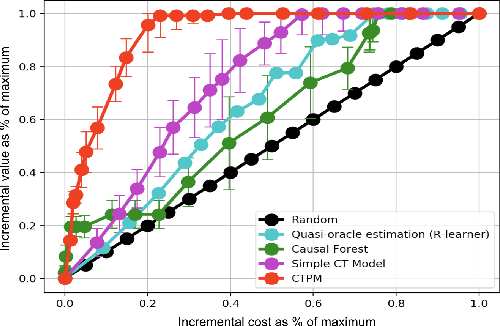
Abstract:Causal inference methods are widely applied in the fields of medicine, policy, and economics. Central to these applications is the estimation of treatment effects to make decisions. Current methods make binary yes-or-no decisions based on the treatment effect of a single outcome dimension. These methods are unable to capture continuous space treatment policies with a measure of intensity. They also lack the capacity to consider the complexity of treatment such as matching candidate treatments with the subject. We propose to formulate the effectiveness of treatment as a parametrizable model, expanding to a multitude of treatment intensities and complexities through the continuous policy treatment function, and the likelihood of matching. Our proposal to decompose treatment effect functions into effectiveness factors presents a framework to model a rich space of actions using causal inference. We utilize deep learning to optimize the desired holistic metric space instead of predicting single-dimensional treatment counterfactual. This approach employs a population-wide effectiveness measure and significantly improves the overall effectiveness of the model. The performance of our algorithms is. demonstrated with experiments. When using generic continuous space treatments and matching architecture, we observe a 41% improvement upon prior art with cost-effectiveness and 68% improvement upon a similar method in the average treatment effect. The algorithms capture subtle variations in treatment space, structures the efficient optimizations techniques, and opens up the arena for many applications.
 Add to Chrome
Add to Chrome Add to Firefox
Add to Firefox Add to Edge
Add to Edge